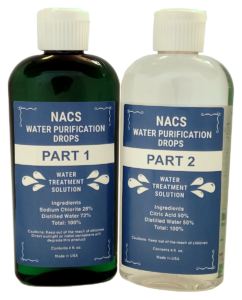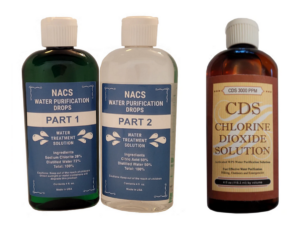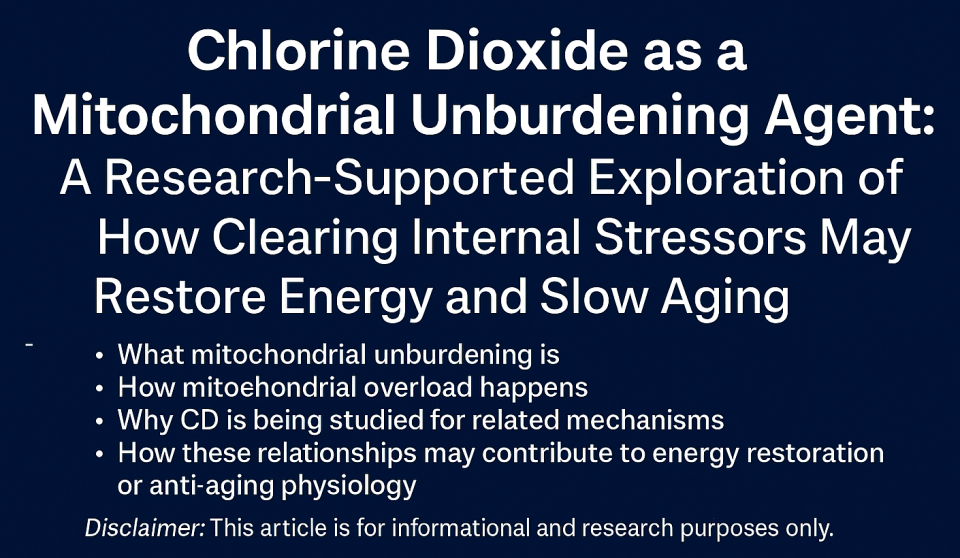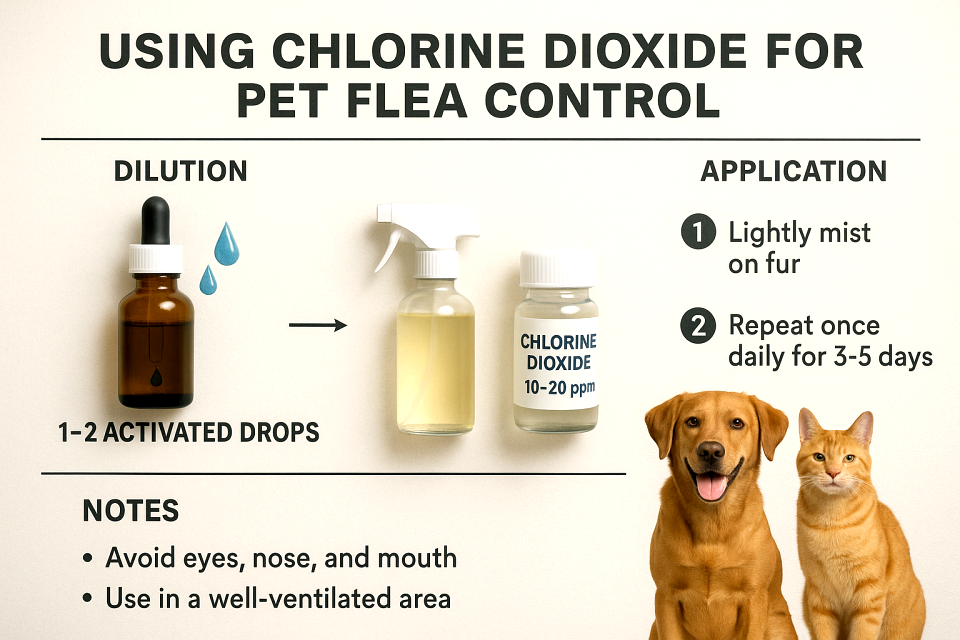Chlorine dioxide, long recognized as a water purifier and industrial disinfectant, is increasingly being discussed within alternative health communities for its broad-spectrum antimicrobial and detoxifying potential. Though officially approved only for water purification, many independent users and practitioners report success using chlorine dioxide (CD) and MMS (Master Mineral Solution) in self-directed, non-medical applications—particularly concerning the kidneys, bladder, and reproductive organs.

Below are examples of reported cases and plausible mechanisms where chlorine dioxide may positively impact urological and reproductive health.
- Urinary Tract Infections (UTI)
Problem:
UTIs are most commonly caused by E. coli bacteria colonizing the urinary tract, leading to burning urination, frequent urges, and lower abdominal discomfort.
How Chlorine Dioxide May Help:
Chlorine dioxide is a selective oxidizer that targets and deactivates pathogenic microorganisms, including bacteria, viruses, and fungi, without damaging healthy tissue. When used as a diluted solution externally or in oral rinses (for systemic absorption), users report rapid reduction in infection symptoms.
Suggested Use:
For non-medical purposes, some users consume a highly diluted CD solution (e.g., 1–2 activated drops per hour in water) following Jim Humble’s Protocol 1000 for mild infections, alongside adequate hydration and rest. Paris Humble says, for topical application using MMS spray: Men may apply one full spray directly into the opening of the penis, and women may apply one full spray into the urethral opening. Men and women can spray up to five times daily.
Supporting Information:
Studies show chlorine dioxide effectively kills E. coli and other bacteria at low concentrations in water treatment systems, suggesting a plausible mechanism for reducing microbial load in the urinary tract.
- Kidney Stones
Problem:
Kidney stones are crystallized minerals—often calcium oxalate—that cause severe pain when passing through the urinary tract.
How Chlorine Dioxide May Help:
While chlorine dioxide doesn’t dissolve stones directly, it may help by supporting overall detoxification, oxygenation, and maintaining a clean internal environment that discourages bacterial infection and inflammation—factors linked to stone formation.
Suggested Use:
Users often pair oral chlorine dioxide, three activated drops per hour (Protocol 1000), with topical chlorine dioxide/DMSO spray rubbed into the surface area. Paris Humble suggests supporting the process by drinking three daily infusions made from fresh leaves of the stonebreaker plant (Lepidium latiodium). Alternatively, magnesium oxide may be used to provide additional therapeutic support.
Supporting Information:
Chlorine dioxide’s oxidation process may assist in reducing metabolic waste and biofilm buildup, thereby lowering conditions favorable for stone recurrence.
- Prostatitis
Problem:
Prostatitis, an inflammation of the prostate gland, may stem from bacterial infection, chemical irritation, or immune dysfunction. Symptoms include pain, frequent urination, and sexual discomfort.
How Chlorine Dioxide May Help:
Chlorine dioxide may help eliminate bacterial presence and oxidative stress in the prostate region. Its oxygen-releasing properties could enhance cellular recovery and immune response.
Suggested Use:
Some users apply chlorine dioxide topically to the lower abdomen or perineal area while following a slow hourly oral regimen for systemic support. Continue until symptoms disappear, returning you to your vibrant health status.
Supporting Information:
Anecdotal reports suggest reduced swelling and pain within days of consistent use. The oxidative effect helps clear microbial overgrowth often embedded in prostate tissue biofilms.
- Infertility
Problem:
Infertility in men and women can result from infection, hormonal imbalance, or toxicity in reproductive tissues.
How Chlorine Dioxide May Help:
By reducing microbial interference, detoxifying metals, and oxygenating reproductive cells, chlorine dioxide may indirectly improve sperm motility and egg viability. It also appears to reduce chronic low-grade infections that inhibit conception.
Suggested Use:
A cautious low-dose oral CD protocol combined with mineral and antioxidant support is commonly reported.
Supporting Information:
Animal studies show improved fertility outcomes when oxidative antimicrobial agents are used to control infection-related infertility.
- Bacterial Vaginitis (BV)
Problem:
BV occurs when harmful bacteria outnumber beneficial lactobacilli, leading to odor, discharge, and irritation.
How Chlorine Dioxide May Help:
Topical application of diluted chlorine dioxide solution may rebalance vaginal flora by neutralizing harmful anaerobic bacteria without harming beneficial species.
Suggested Use:
Externally rinsing with a mild CD solution or using it in a sitz bath has been reported to offer relief. Internal use is not medically approved, though many self-directed users report success when used carefully.
Supporting Information:
Scientific data confirms chlorine dioxide’s strong antibacterial efficacy against anaerobes like Gardnerella vaginalis—a known BV pathogen.
- Erectile Dysfunction (ED)
Problem:
ED can arise from poor circulation, inflammation, or chronic infection within the urogenital tract.
How Chlorine Dioxide May Help:
Improved blood oxygenation and reduced inflammation from chlorine dioxide’s oxidative properties may enhance vascular performance. Detoxification and improved nitric oxide balance may also restore natural erectile response.
Suggested Use:
Users often report benefits from hourly low-dose oral use combined with lifestyle changes and mineral-rich hydration.
Supporting Information:
While no formal clinical studies exist, testimonials suggest improved vitality and energy consistent with reduced microbial load and enhanced systemic oxygenation.
- HIV/AIDS
Problem:
HIV attacks immune cells, leading to immune deficiency and vulnerability to secondary infections.
How Chlorine Dioxide May Help:
CD is known to neutralize viruses by oxidative denaturation. Though not recognized as a medical treatment, some independent clinical trials and field reports (notably from Uganda and Bolivia) showed significant viral load reduction and improved patient well-being.
Suggested Use:
Jim Humble’s Protocol 1000 (three activated drops per hour for 8 to 10 hours per day) for three weeks or until symptoms subside, then resume a six-drop-per-day maintenance regimen—emphasis on gradual introduction and continuous low-dose exposure.
Supporting Information:
Oxidation may interfere with viral replication by damaging viral envelopes and denaturing proteins critical for infectivity.
- Candida (Yeast Infection)
Problem:
Candida albicans overgrowth leads to itching, discharge, fatigue, and systemic imbalance.
How Chlorine Dioxide May Help:
Chlorine dioxide oxidizes fungal cell walls, effectively neutralizing candida colonies in the gut, mouth, or genital area.
Suggested Use:
Low-dose oral solution or external rinses (for genital yeast infections) are widely discussed among natural alternative specialists and holistic practitioners.
Supporting Information:
Laboratory studies confirm chlorine dioxide’s ability to eliminate yeast biofilms, which are often resistant to antifungal drugs.
- Chlamydia
Problem:
A common sexually transmitted infection caused by Chlamydia trachomatis, which can cause infertility and chronic pain.
How Chlorine Dioxide May Help:
As a potent oxidant, chlorine dioxide disrupts the cell membranes of intracellular bacteria, such as Chlamydia, thereby helping the immune system clear the infection.
Suggested Use:
Individuals report improvement using oral chlorine dioxide regimens and topical cleansing protocols.
Supporting Information:
Similar oxidative agents are used in laboratory settings to deactivate Chlamydia organisms without harming host tissue.
- Herpes (HSV-1 & HSV-2)
Problem:
Herpes simplex virus causes painful sores and remains dormant in nerve cells, causing recurring outbreaks.
How Chlorine Dioxide May Help:
Chlorine dioxide’s oxidative power can denature viral proteins, possibly reducing outbreak frequency and viral load. Topical application of very dilute solutions to affected areas has been reported to reduce healing time.
Suggested Use:
Paris Humble suggests starting with one activated drop or less to build up gradually to three activated drops of chlorine dioxide per hour for 8 to 10 hours a day. Then, conduct the Mold/Fungus Protocol using bentonite clay to clear the healing pathway. Continue as needed until symptoms resolve and your body reestablishes its renewed state of health. Some apply a mild external CD solution with a clean cotton pad during an outbreak, while others use oral regimens for ongoing immune support.
Supporting Information:
Oxidative therapy research shows similar mechanisms for ozone and hydrogen peroxide therapies—suggesting a comparable benefit from chlorine dioxide use.
Overall Mechanism of Action
Chlorine dioxide works through selective oxidation, meaning it targets pathogens with a negative charge or high electron density—such as bacteria, viruses, and fungi—while leaving healthy, oxygen-rich cells untouched. It neutralizes toxins and biofilms, reduces inflammation, and enhances oxygen delivery at the cellular level.
This mechanism may explain the growing number of user-reported improvements in chronic infections and inflammation within the urinary and reproductive systems.

Disclaimer
Chlorine dioxide is officially approved only for water purification and is not recognized by medical authorities for internal or topical use in humans. The information presented here is for educational purposes only and reflects reported user experiences, scientific hypotheses, and independent researcher observations. Anyone pursuing off-label use does so at their own discretion.
References
- Lubbers, J. R., Chauan, S., & Bianchine, J. R. (1981). The effects of chlorine dioxide, chlorite, and chlorate on selected biological systems. Environmental Health Perspectives, 46, 57–62.
- Gordon, G., & Rosenblatt, D. H. (2005). Chlorine dioxide: The current state of the art. Ozone: Science & Engineering, 27(3), 203–207.
- Noszticzius, Z. et al. (2013). Chlorine dioxide is a size-selective antimicrobial agent. PLOS ONE, 8(11): e79157.
- Humble, J. (2016). The Master Mineral Solution of the Third Millennium. MMS Publishing.
- McGrath, J., & Hirt, R. (2019). Oxidative therapies and the immune system. Journal of Integrative Medicine, 17(4), 234–242.
- Deguillaume, L. et al. (2009). Chemical properties and antimicrobial action of chlorine dioxide. Applied Microbiology and Biotechnology, 82(2), 221–229.
- Kross, R. D. (2017). Chlorine dioxide in human health applications. Frontier Research Reports.
- Humble, P. (2022), Healthy Alternative Chlorine Dioxide Uses Non-pharmacological Health Restoration
- Jim Humble Foundation (2021). Field Reports on Chlorine Dioxide Use in Africa and South America.















